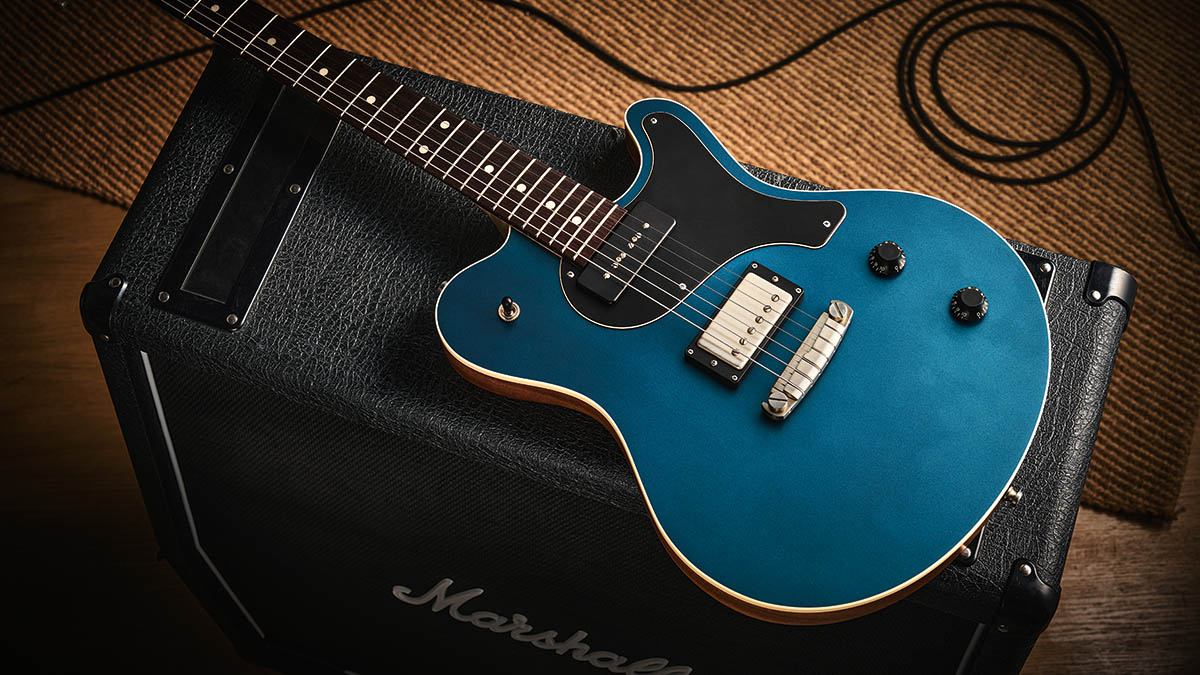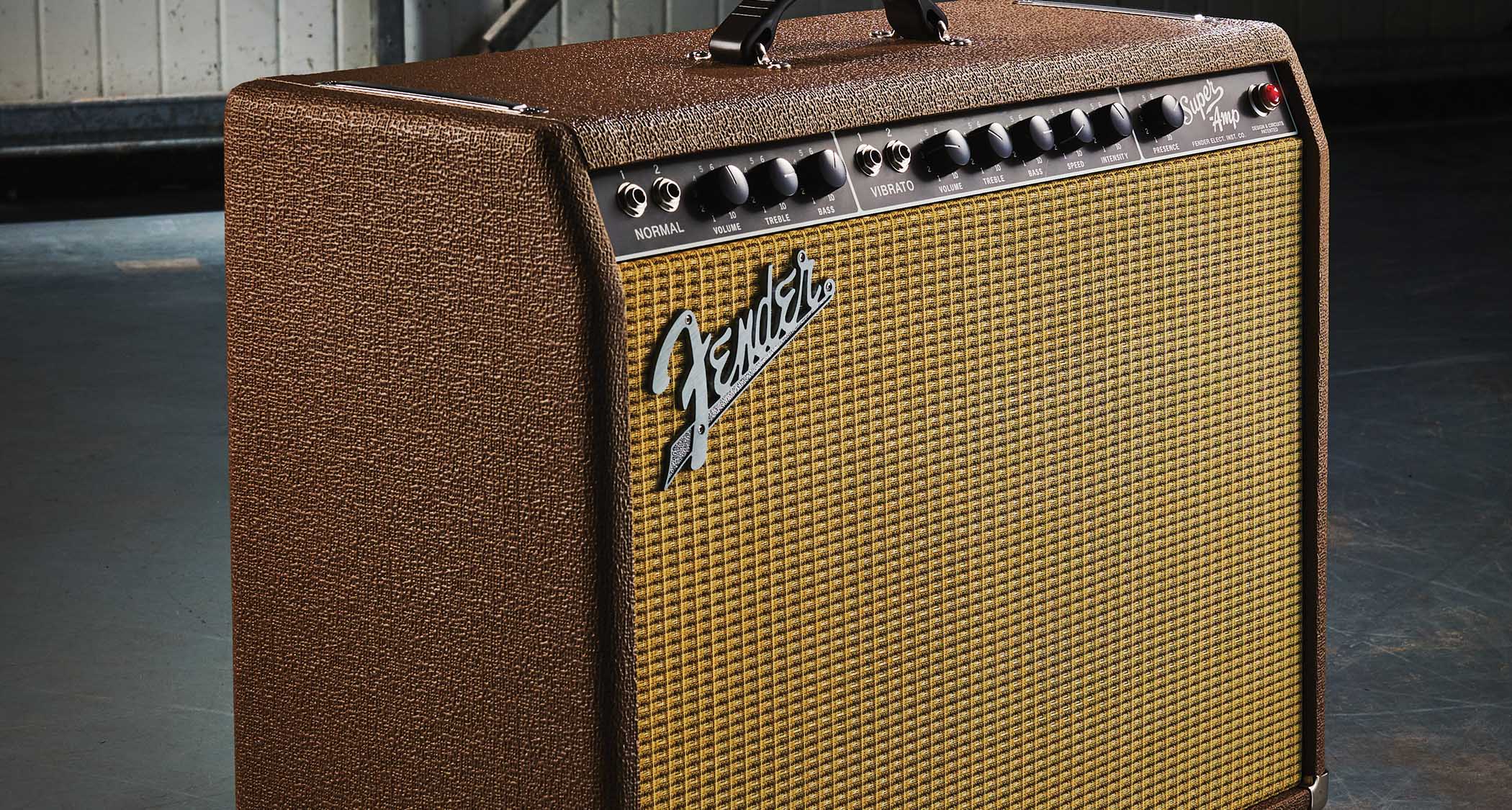Guitar World Verdict
As Nik Huber is a well-known fan of ’50s Juniors and Specials, you could suggest the Krautster is pretty much his signature guitar. It’s not just the immaculate craft on show; it’s a real-world player’s guitar and would be a crime to keep cosseted in a case or gigbag.
Pros
- +
Superbly crafted.
- +
Lightweight solidbody.
- +
Beautifully shaped ‘big’ neck.
- +
Expansive sounds and very well-dialled in control circuit.
- +
Lived-in feel and appearance.
Cons
- -
Nothing to see here!
You can trust Guitar World
Getting our hands on a Nik Huber electric guitar is a rare occurrence as everything he and his small team makes is instantly snapped up by hungry dealers. But you only have to spend a few minutes with your hands wrapped around this Krautster III to realise you’re in a different league: guitar-making royalty.
The Krautster first appeared back in 2009, in single- ‘I’ and dual-pickup ‘II’ iterations, using Nik’s Orca outline shape: a classic slab-bodied single-cut, typically in ‘worn’ satin colours and stripped-down style.
It was quite a directional change as Nik had slowly established a solid reputation during the previous decade and a half for his sumptuous carved-top guitars with highly figured woods and a ‘dipped in glass’ finish. But the timing proved perfect and the more-affordable Krautster went on to become his most-ordered guitar.
Now, this III version swaps back to Nik’s original Dolphin outline, a sort of stylised take on the Telecaster with a more rounded base and upper shoulder. While we discuss the reasons for the switch in body style elsewhere in this feature, let’s remind ourselves of the craft.
Based around a PRS-like scale length of 635mm (25‑inch), the Krautster, as always intended, is a bare-bones simplistic guitar. If you want bells and whistles and a slathering of opulence, Nik will happily satisfy your dreams, but it won’t be called a Krautster.
The body is slab-style two-piece centre-joined mahogany, 43mm in depth, with a slight, smoothly carved ribcage contour on the back. Its top edge is cleanly cream bound, the back edges with quite a large radius.
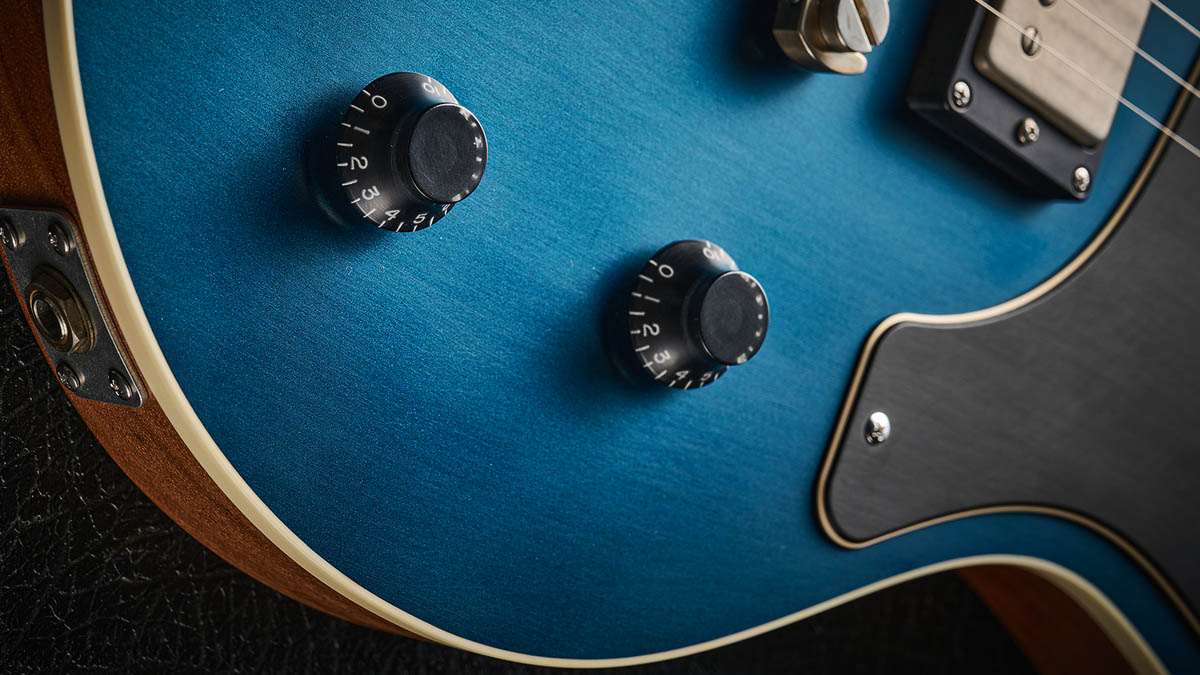
But it’s the neck that you’ll notice before anything else. It’s slightly diagonally grained so the heavy flame is enhanced on the bass side – the bit you look at – and typically it has a lightly grey/blue wash that goes back to the first of the breed. It also has plenty of heft, super satin-smooth to the touch and a subtly V’d yet full-feeling profile. If you bought this guitar just for this exceptional neck, we wouldn’t blame you.
All the latest guitar news, interviews, lessons, reviews, deals and more, direct to your inbox!
Unlike the bound body edge, the deeply coloured rosewood fingerboard is unbound, with simple bone dot inlays, and has Huber’s standard 254mm to 356mm (10- to 14-inch) compound radius.
The fret tangs are notched and sit in milled slots that stop before the edges, so you can’t see any fret slots from the sides. The wire is pretty classic medium jumbo, certainly not overbig, superbly installed and polished, while the fingerboard edges are lightly rolled like they should be.
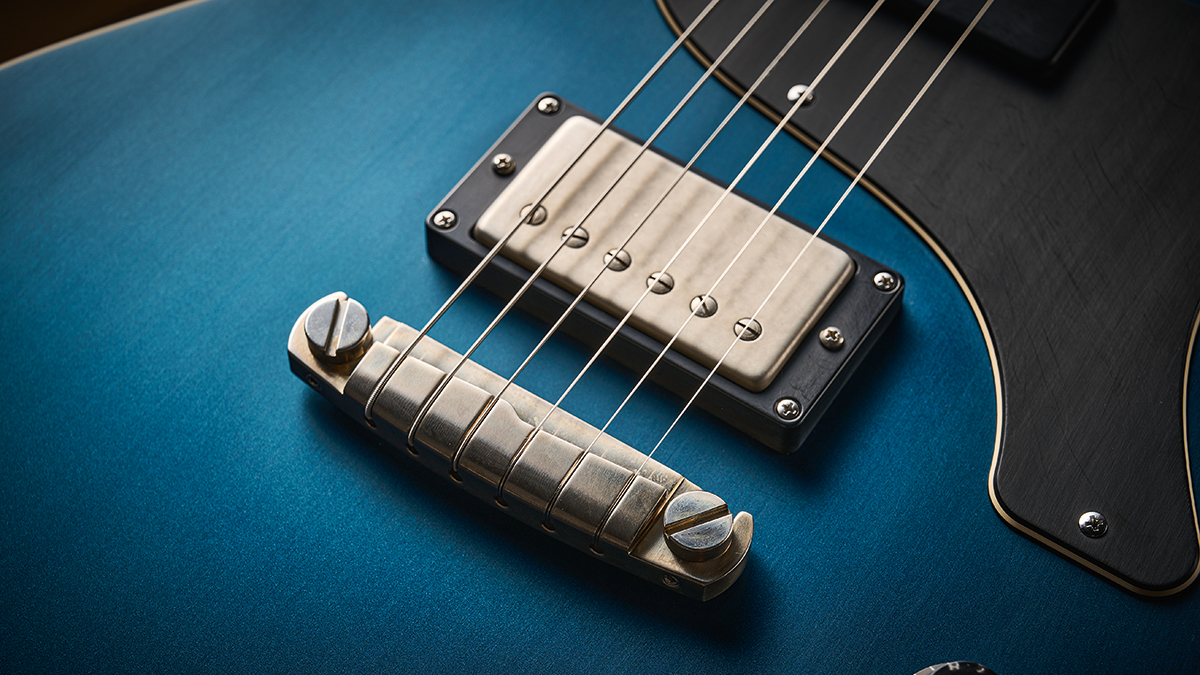
If features like the neck and fretwork create a far-from-new feel, not to mention the ‘worn’ brushed top finish, that is enhanced by the lightly-aged Huber wrapover bridge with its PRS-style intonated ridge and the bridge pickup’s cover. The open-back Huber (by Gotoh) tuners don’t look aged, just very classy in a nickel plating with the brass cog-wheel proudly on show.
Even the simple three-ply scratchplate has the ‘new’ gloss burnished back to a light satin, as do the cover of the direct-mounted P-90 and even the control knobs. This class continues to the black ebony-faced headstock with what looks like a lightly aged thin silver logo applied over the light satin finish.
Aside from the hand-written model name and serial number on the headstock back, outwardly that’s all the identification you get.
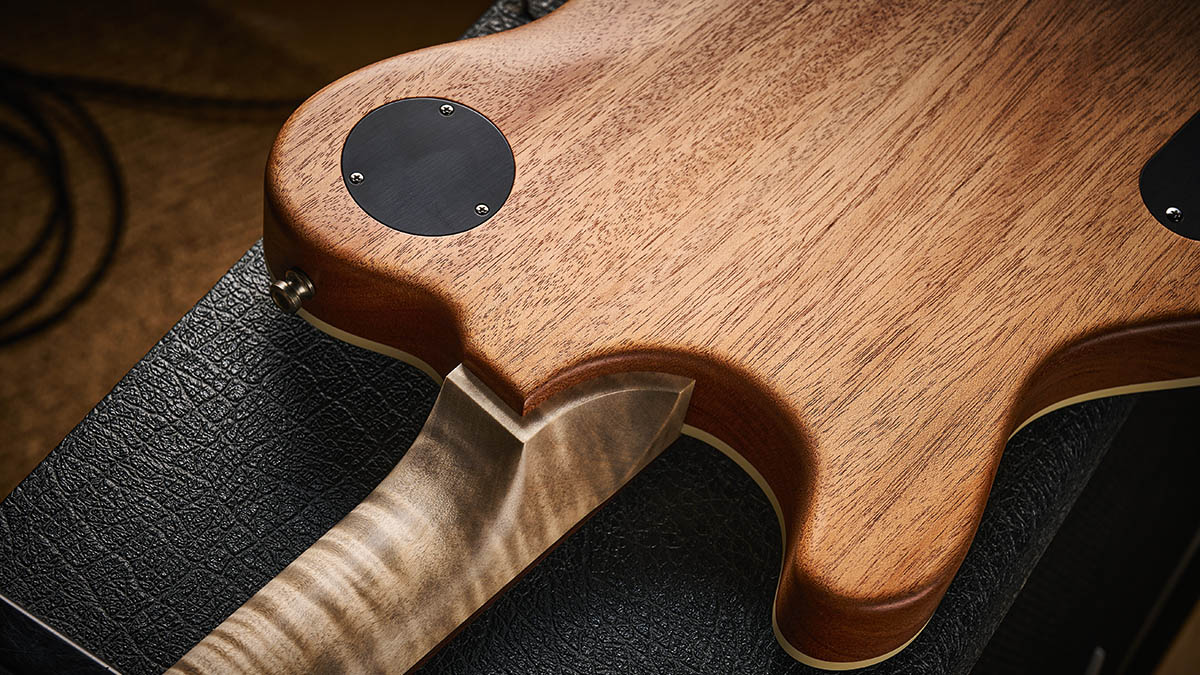
Feel & Sounds
At 3.02kg (6.64lb) this Krautster is slightly lighter than our ’50s Junior reference, and strapped on it pretty much disappears. It could easily be your sofa noodler, and a few strums reveal more than enough unplugged volume for that purpose and just how vibrant and ‘alive’ it is. And although it is a big neck (by the way, Nik does offer a slimmer ’60s-style option), it is just so well shaped, it’s virtually addictive.
For those who care about such things, the neck’s depth measures 23mm at the 1st fret and 25.2mm by the 12th with a not over‑wide nut width of 42.7mm, and 51.8mm at the 12th, just slightly deeper and slightly thinner than our ’50s Junior.
Strung with 10s and with the 635mm scale and a pretty mainstream action height of 1.5mm on the treble side and 1.8mm on the bass side, it plays effortlessly with nice height to the perfectly polished frets (which aren’t over-wide, either).
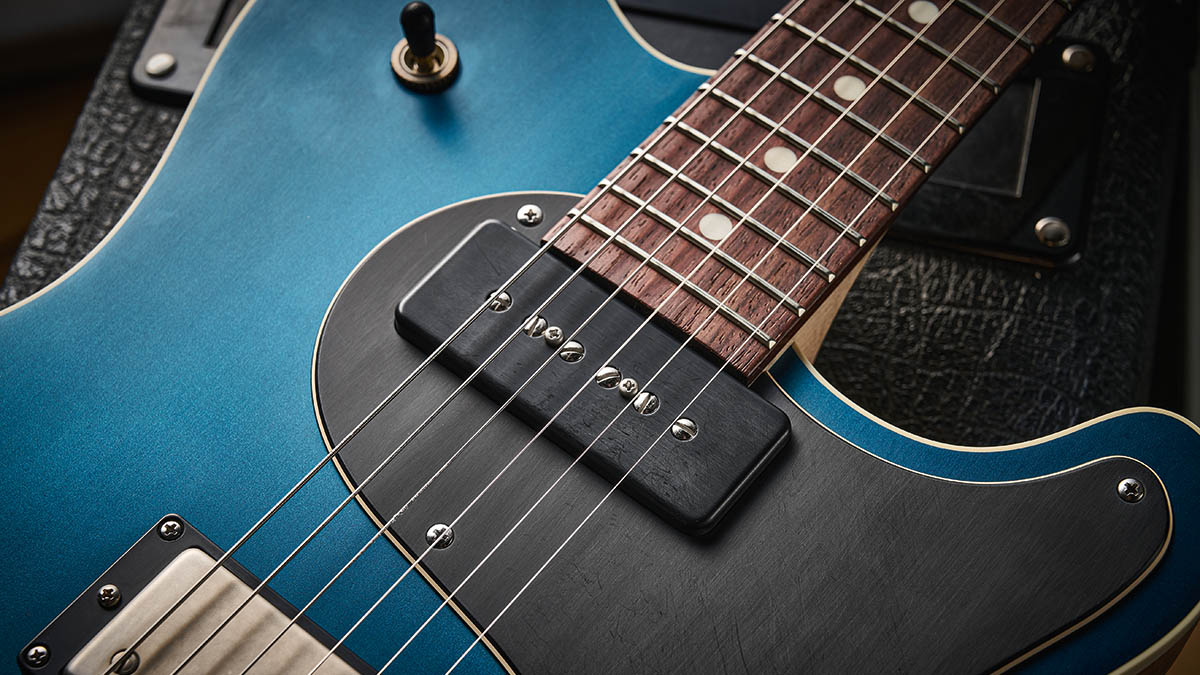
The exceptional feel and playability of the Krautster is matched by its sounds. Anyone having to cross genres and styles within a single gig will appreciate the subtlety here, and the key to that lies in a very well-considered control circuit.
With both controls full up, there’s beefy clout at the bridge for all your classic rock needs, while the neck P-90 sits just right with a very musical balance of PAF-y plum with a subtle bite. The mix hollows the voice, not least with a little volume reduction, as we edge into a more Fender-y territory.
The exceptional feel and playability of the Krautster is matched by its sounds.
Pull up the tone pot switch on the bridge to engage the coil-split, which cleans up a little more, enhancing the bite: there’s Tele-like character without any excessive edge.
The volume control alone has a near-perfect taper and doesn’t pull down the highs as you roll it back; that tone pulls the highs back but even full-off is usable for a flutey ‘woman’ tone voice with a little outboard gain boost. It’s not bringing anything new to the table, but everything works so well: no surprises, no disappointments and nothing gets in the way of the playing.
Verdict
As Nik Huber is a well-known fan of ’50s Juniors and Specials, you could suggest the Krautster is pretty much his signature guitar. It’s not just the immaculate craft on show; it’s a real-world player’s guitar and would be a crime to keep cosseted in a case or gigbag.
This craft and experience doesn’t come cheap, and we’re not short of high-level boutique options, either – many, of course, inspired by Nik’s style. But don’t blame us if, after getting your hands on one of these, you’re considering what you can sell or trade to make it your own…
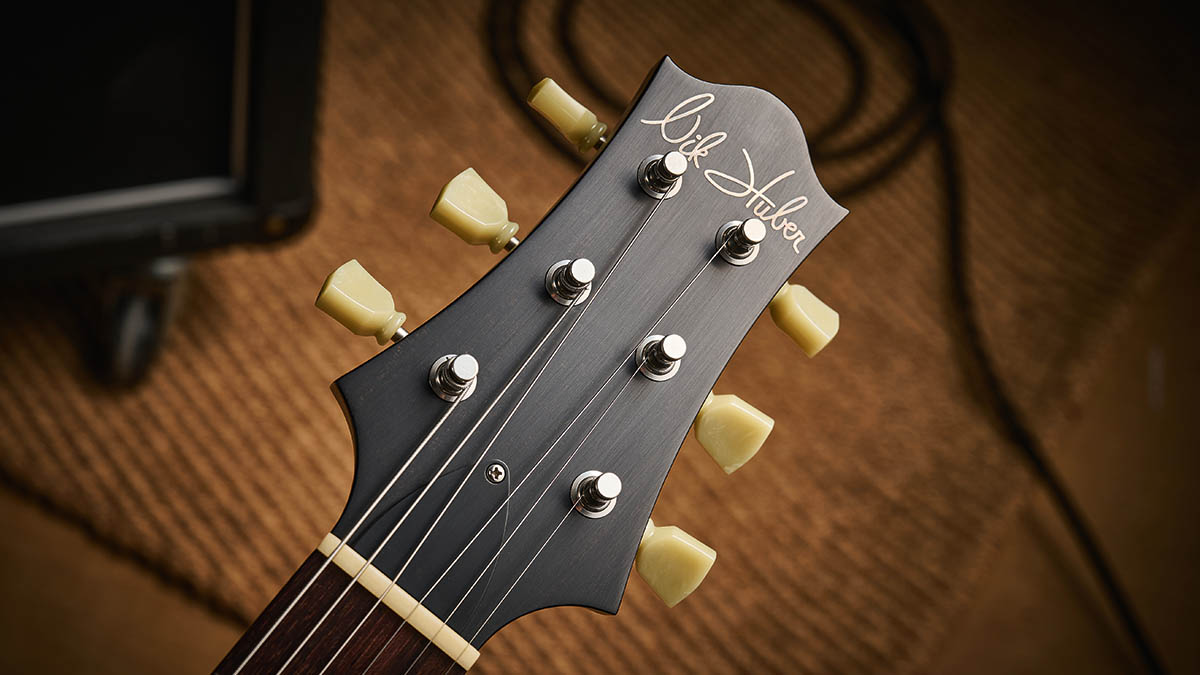
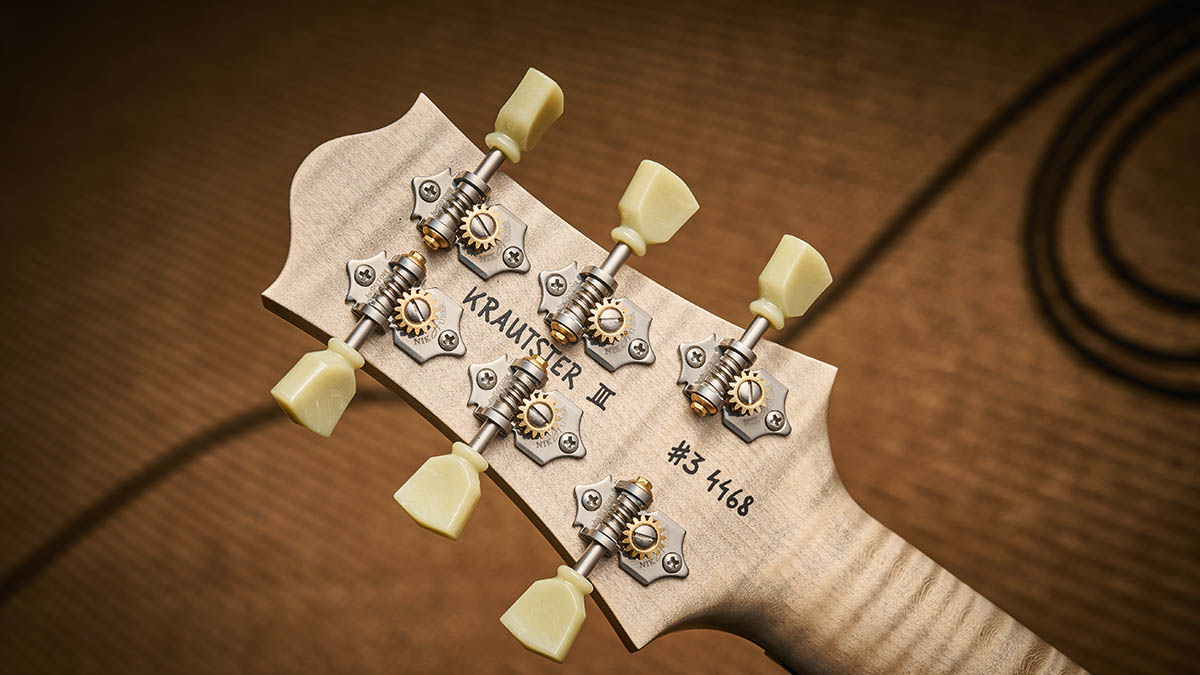
There’s a beautiful worn-in feel and appearance here, too, and, be warned, the very thin finish wears and marks easily, although like all Huber models there’s plenty of scope for customisation, too, in terms of neck shape and custom colours, and we’re sure Nik would spray you a full-gloss version. For us, though, the finishing is so much part of the appeal: classy, non-precious and impossible to fault.
Specs
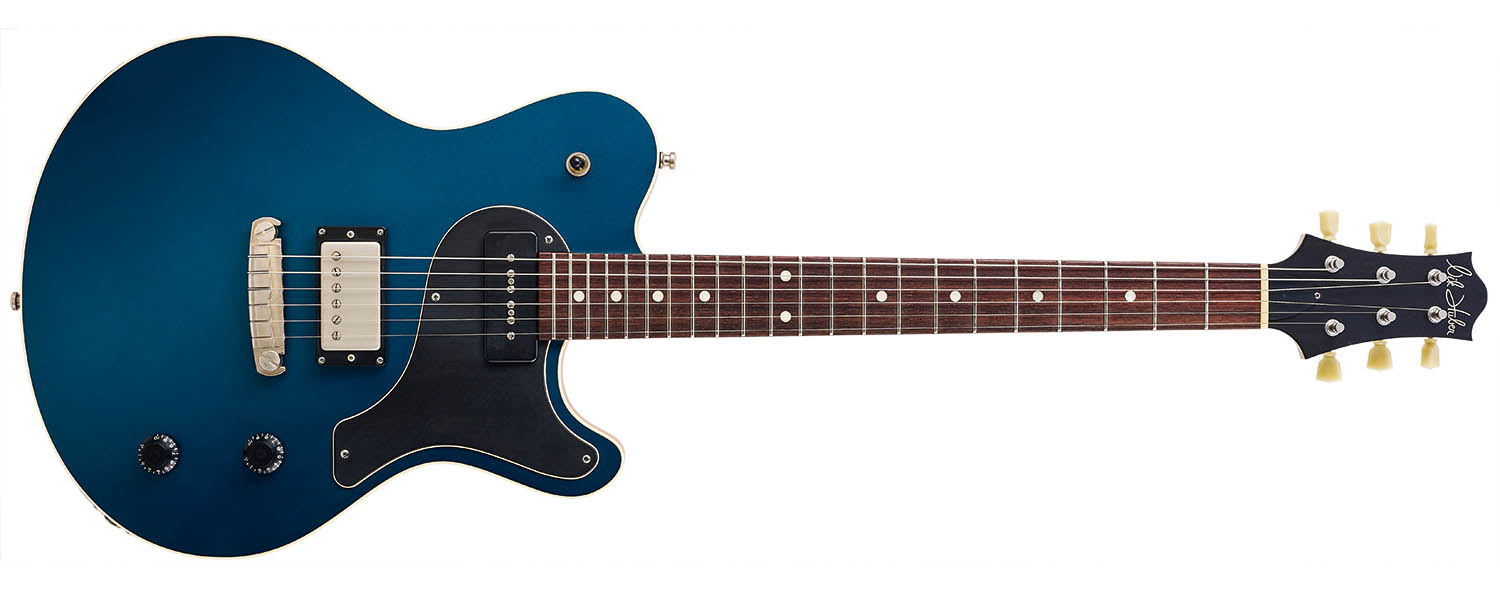
- PRICE: £3,940 (inc gigbag)
- ORIGIN: Germany
- TYPE: Single-cutaway, Dolphin-shape
solidbody electric - BODY: 1-piece mahogany with cream binding
- NECK: 1-piece flamed maple, ‘Standard Krautster’ profile, glued-in
- SCALE LENGTH: 635mm (25”)
- NUT/WIDTH: Bone/42.7mm
- FINGERBOARD: East Indian rosewood, bone dots, 254-356mm (10-14”) compound radius
- FRETS: 22, medium jumbo
- HARDWARE: Huber aluminium Stoptail bridge (aged), Huber (by Gotoh) 510 open-backed tuners
- STRING SPACING, BRIDGE: 51.5mm
- ELECTRICS: Nik Huber Krautster humbucker (by Häussel) at bridge; Häussel P90 ‘1956’ single coil at neck, 3-way toggle pickup selector switch, master volume and tone (with pull/push coil-split)
- WEIGHT (kg/lb): 3.02/6.64
- OPTIONS: The base price of the Krautster III is £3,595; the custom colour adds £345. Other options include Bigsby vibrato (£POA). Custom orders on request
- RANGE OPTIONS: The Orca-shaped Krautster II is still available from £3,795 (inc case). Other ‘slab’-bodied Hubers with the Dolphin outline include the Piet (from £3,395 with hardtail bridge; £3,995 with offset vibrato) and the Surfmeister (from £4,895)
- LEFT-HANDERS: Yes (£POA)
- FINISHES: Worn Petrol Blue (as reviewed). Standard colours are Onyx Black, Cali Gold, Worn Copper and Vintage White. Custom colours on request – brushed polyurethane top finish, thin nitro to back, sides and neck
- CONTACT: Nik Huber Guitars

Dave Burrluck is one of the world’s most experienced guitar journalists, who started writing back in the '80s for International Musician and Recording World, co-founded The Guitar Magazine and has been the Gear Reviews Editor of Guitarist magazine for the past two decades. Along the way, Dave has been the sole author of The PRS Guitar Book and The Player's Guide to Guitar Maintenance as well as contributing to numerous other books on the electric guitar. Dave is an active gigging and recording musician and still finds time to make, repair and mod guitars, not least for Guitarist’s The Mod Squad.
